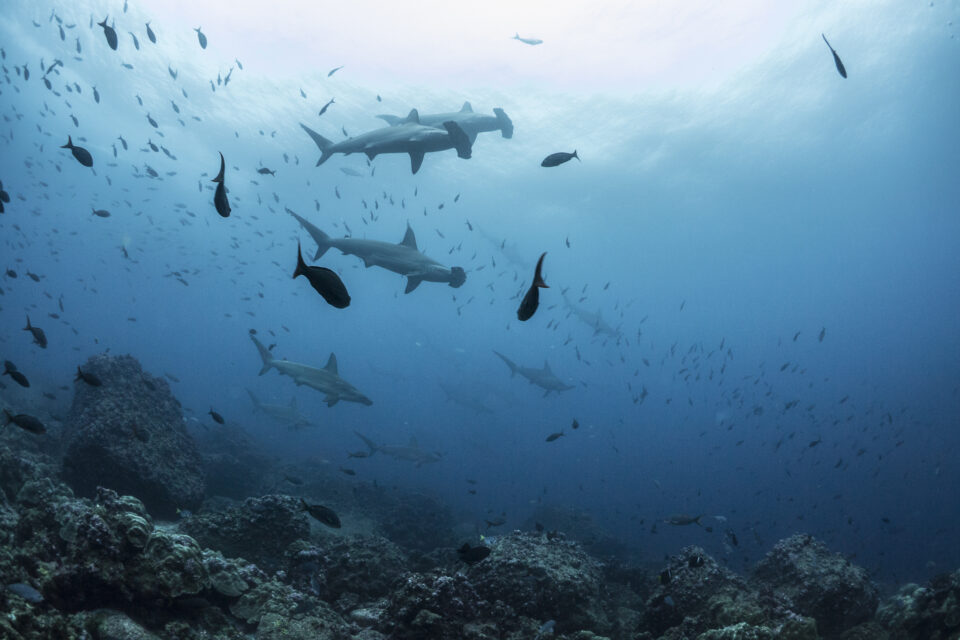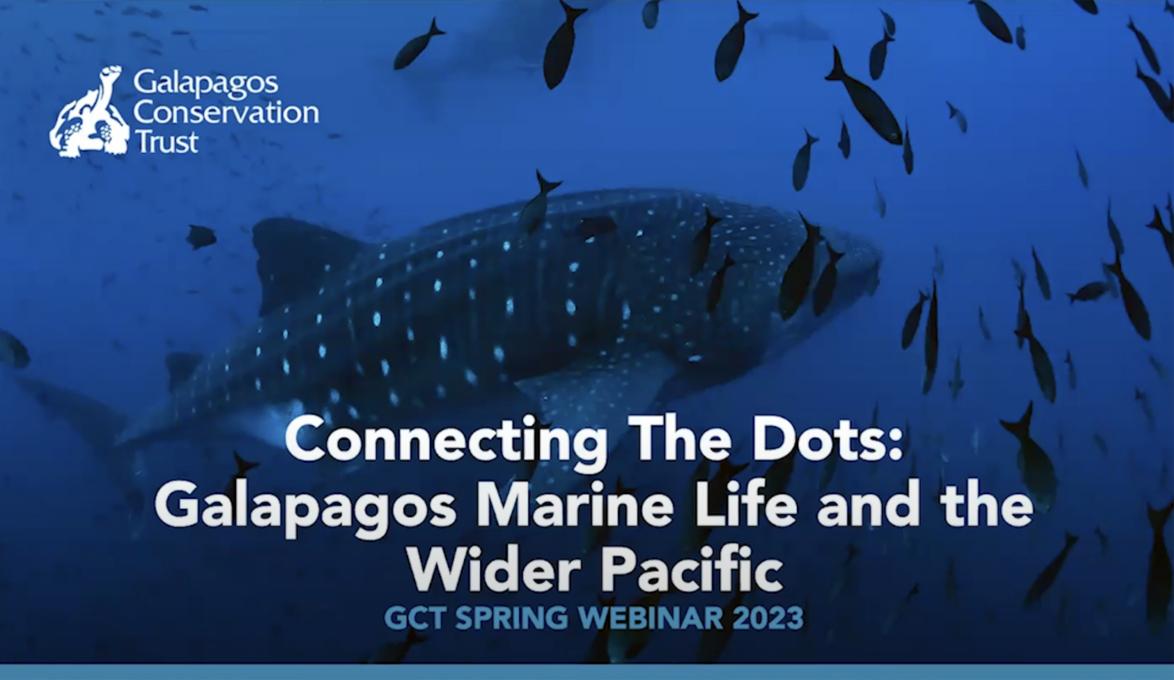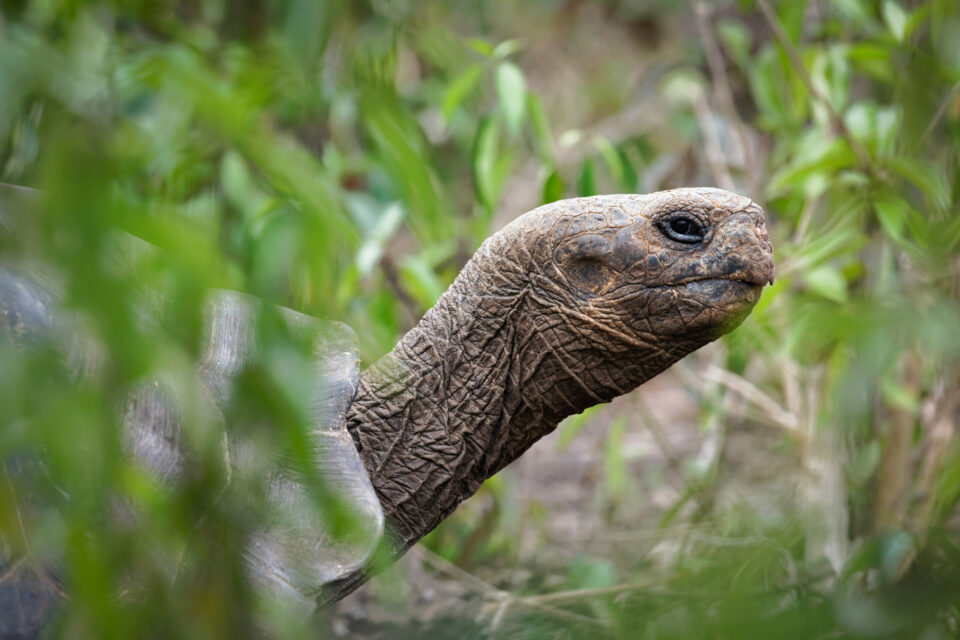

Ocean Protection Webinar 2023
In our spring webinar we discussed the threats to marine life in Galapagos, showing how research supported by GCT is deepening our understanding of the connections between the Galapagos Marine Reserve and the wider Eastern Tropical Pacific.
Thank you to everyone who joined us for our spring webinar on 23 May 2023 – ‘Connecting the Dots: Galapagos Marine Life and the Wider Pacific’. It was a fascinating, inspiring and, at times, shocking look at the threats to wildlife in the seas around Galapagos.
A total of 450 people from 30 different countries registered for the event, with every continent except for Antarctica represented, demonstrating how this incredibly special place continues to inspire and fascinate so many people around the globe.
If you missed the webinar or you would like to see it again, you can watch the recording below:
The question of the future of the ocean is the one that we’re always being asked. Is there hope? Is there a future? Yes of course there is, it’s not too late, but we must focus efforts together.
The overarching theme of the evening was connectivity, and we took a deep dive into how we can protect marine species in Galapagos at every stage of their lifecycle, from the nursery grounds in the Galapagos Marine Reserve all the way out to the high seas.
In 2022 we celebrated a big win for ocean conservation, with the expansion of the Galapagos Marine Reserve – based on years of research and fieldwork funded by GCT and others – increasing the protection of Ecuador’s waters from 15% to 18.9%, a significant step towards the goal of protecting 30% by 2030. However, endangered marine species in Galapagos continue to face threats throughout their lives. Within the Marine Reserve, mangroves that provide vital nursery sites for endangered baby sharks and rays are threatened by pollution. Beyond the protection of the Marine Reserve, migratory species such as whale sharks and scalloped hammerheads are deliberately targetted for their fins or caught as ‘bycatch’ by industrial fishing fleets, which operate with impunity on the high seas. And across the Galapagos Archipelago, a growing tide of plastic pollution is ensnaring wildlife and entering the food chain, affecting iconic marine species such as waved albatrosses, flightless cormorants and marine iguanas.
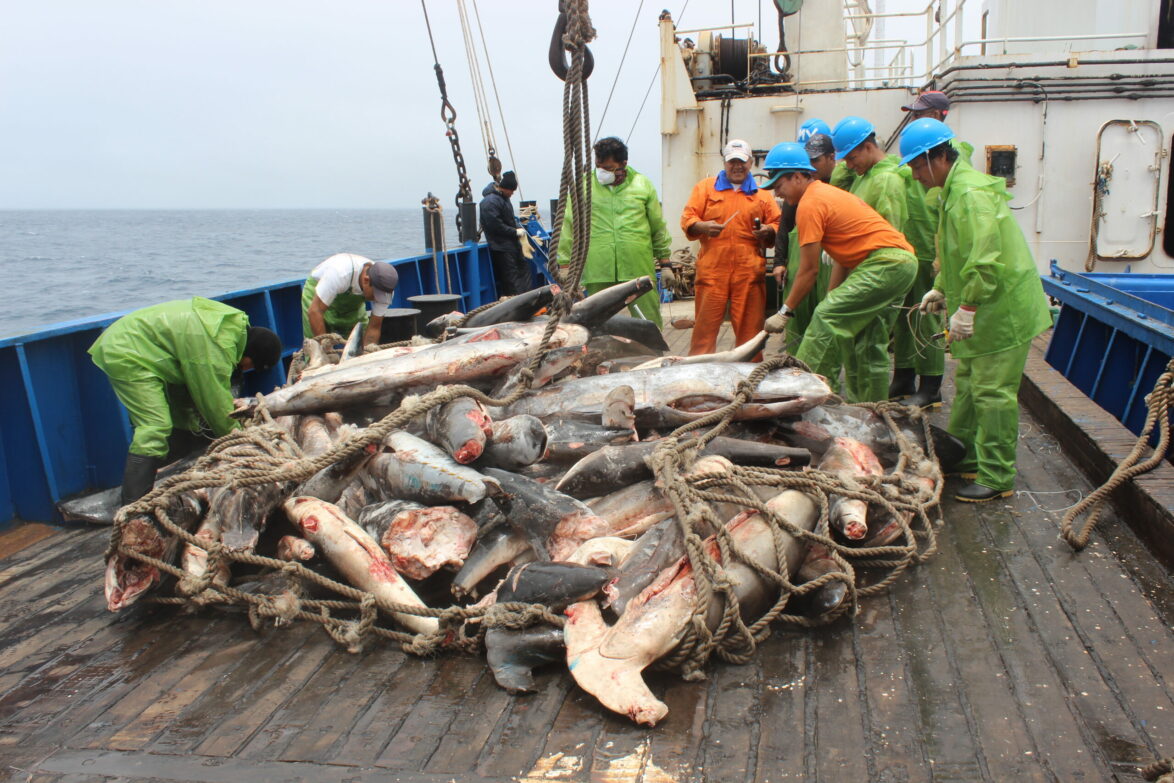
In our webinar, introduced by our Interim CEO, Dr Jen Jones, we discussed all of these threats to marine life in Galapagos, showing how research supported by GCT is deepening our understanding of the connections between the Galapagos Marine Reserve and the wider Eastern Tropical Pacific. Jonathan and Sofía Green of the Galapagos Whale Shark Project explained how tagging and tracking whale sharks has helped to map out new marine protected areas, as well as providing disturbing evidence of the impact of industrial fishing on these gentle giants.
GCT’s Jess Howard then presented some of the findings from the last five years of plastic pollution research in Galapagos and the Eastern Tropical Pacific, identifying the sources and devastating effects of plastic waste in Galapagos, and ended the evening on a positive note by highlighting some of the potential solutions to tackling this pervasive problem.
18.9 %
of Ecuador's waters currently designated as protected
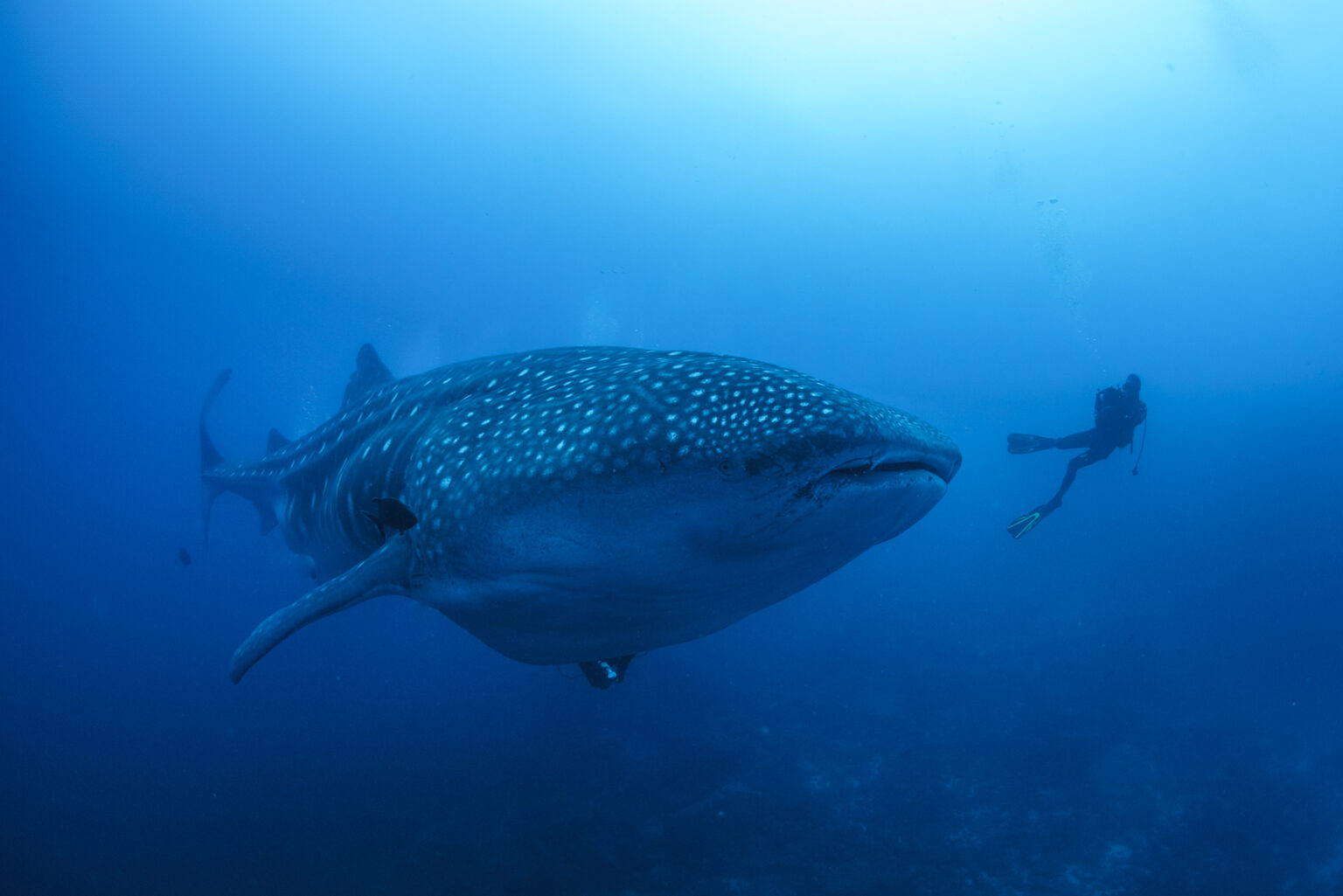
How you can help
Please give whatever you can to our Ocean Protection Appeal and help us fight back for the marine life of Galapagos.
Related articles

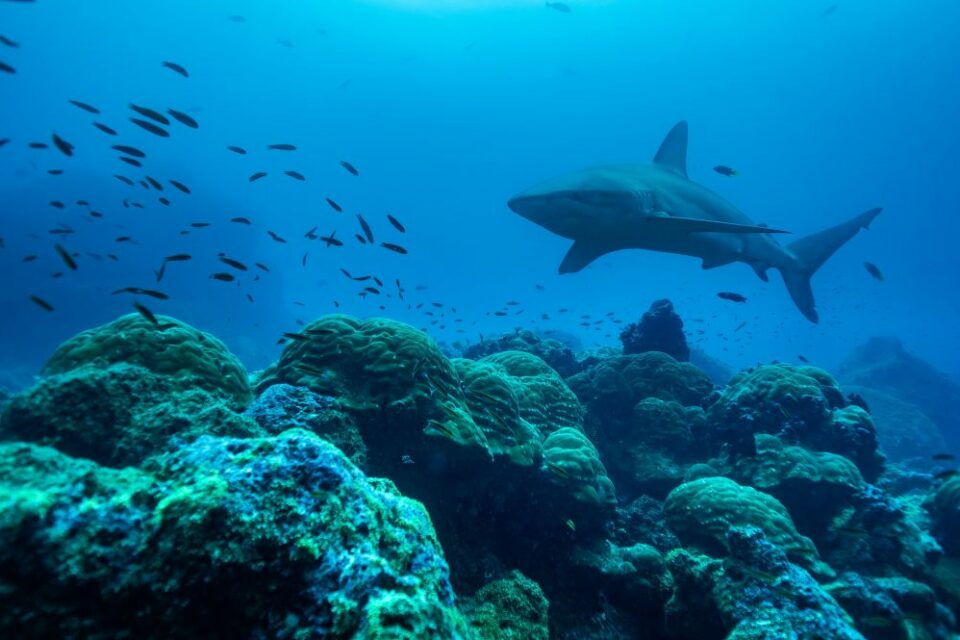
Sharks: Our ocean’s superheroes, not villains

Tagging a new constellation of whale sharks
